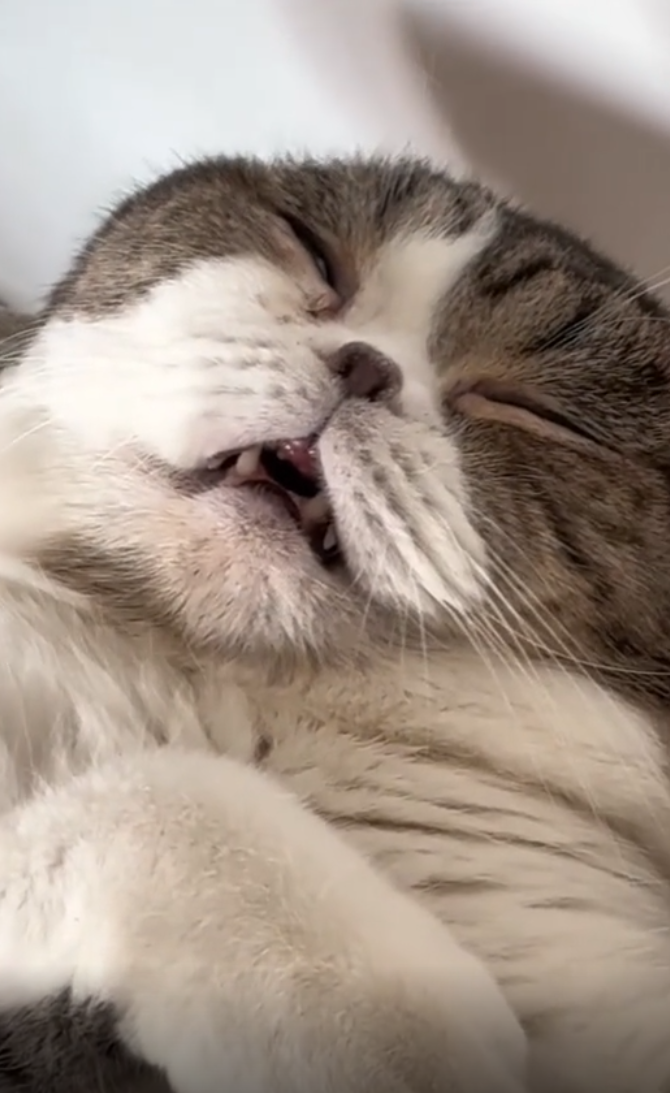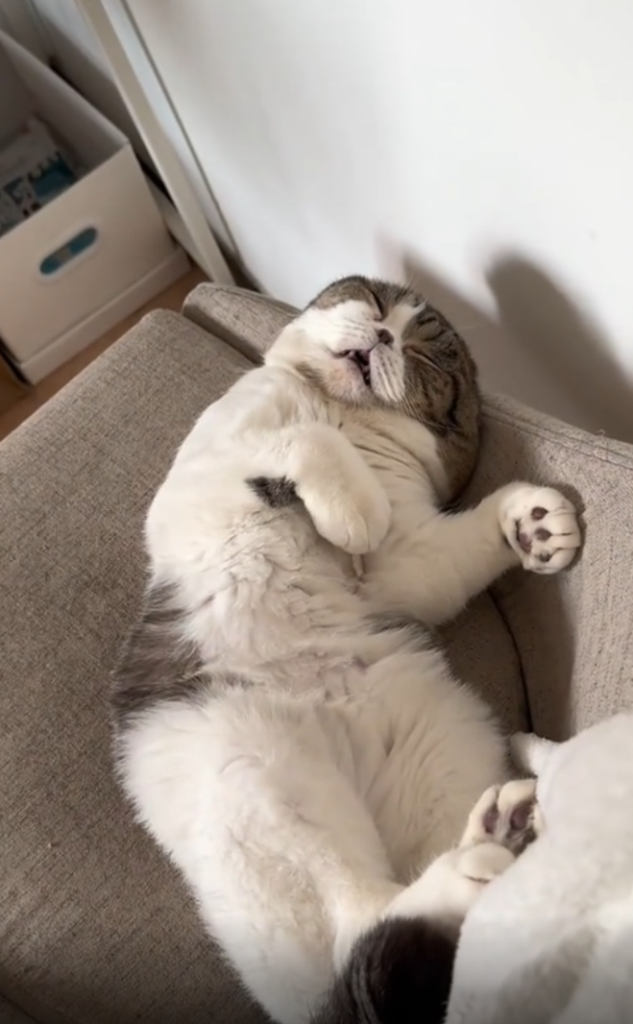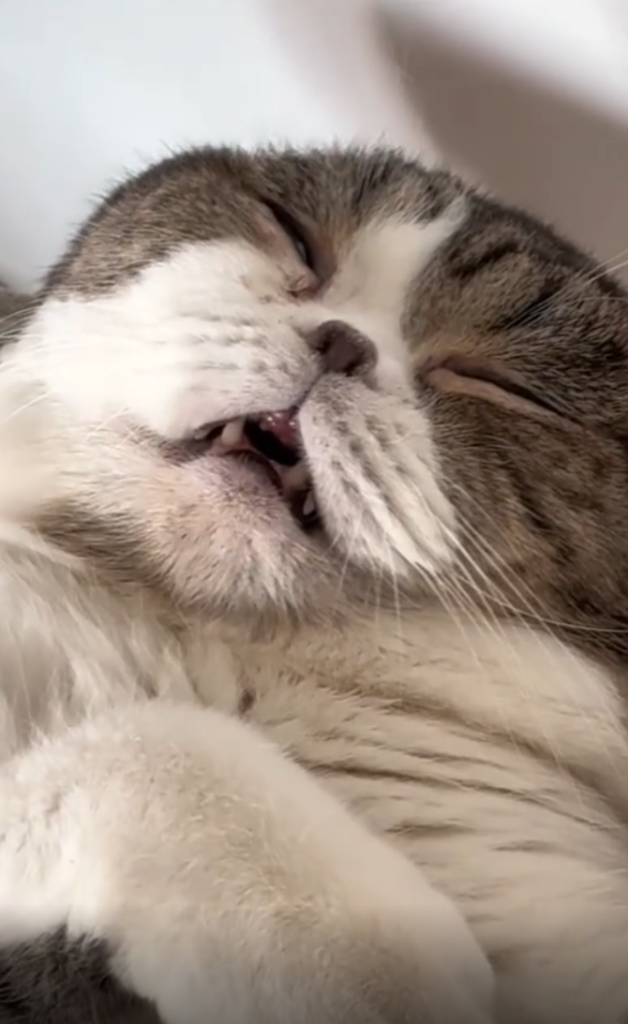
What Your Feline’s Sleep Sounds Are Trying to Tell You
We’ve all heard it—a soft, rhythmic purring sound coming from your snoozing cat. But wait, is that snoring? While it might be adorable (and let’s admit, hilarious), a snoring cat can leave many pet parents wondering: Is it normal? Should I be worried? Or is my cat just living their best, most relaxed life?
Let’s dive into the reasons why cats snore, what it means, and when it might signal something more serious.

The Sweet Symphony of Cat Snores
First, let’s address the obvious: yes, cats can snore, and in many cases, it’s completely normal. Just like humans, cats may snore when they’re in a deep sleep and completely relaxed.
You’ve probably noticed your cat sleeping in the most awkward positions imaginable—curled into a ball, sprawled on their back, or with their head dangling off the couch. These positions can sometimes cause soft tissues in their throat to vibrate, leading to those cute little snores.
Translation: If your cat is snoring while looking like a yoga master, they’re likely just extra cozy.

Why Do Cats Snore? Common Reasons
Here are a few reasons why your feline friend might be sawing tiny logs in their sleep:
- Deep Relaxation
When your cat is in a state of deep sleep, their muscles (including those in their airway) relax. This is especially common when they’re stretched out or sleeping on their back. - Breed Characteristics
Certain breeds, like Persians and Himalayans, are more prone to snoring due to their flat faces and short nasal passages. This trait, known as brachycephaly, makes it harder for air to pass through their airways, resulting in snores. - Age
Older cats may snore more often because their muscles lose some tone over time, including those in their throat. - Weight
Overweight or obese cats are more likely to snore. Excess fat around their neck and chest can press on their airways, leading to noisy breathing. - Allergies or Irritants
Just like humans, cats can have allergies or be sensitive to irritants like dust, pollen, or cigarette smoke. This can cause inflammation or blockages in their nasal passages, leading to snoring. - Respiratory Issues
In some cases, snoring can be a sign of respiratory problems, such as a cold, sinus infection, or even asthma.
When Should You Be Concerned About Cat Snoring?
While most cat snores are harmless, there are a few red flags to watch out for. If you notice any of the following alongside snoring, it’s time to consult your vet:
- Changes in breathing patterns: Labored or noisy breathing while awake could indicate a more serious issue.
- Discharge from the nose or eyes: This might signal an infection or respiratory problem.
- Coughing or sneezing: Persistent symptoms shouldn’t be ignored.
- Decreased appetite or energy: If your cat seems unwell, it’s best to get them checked out.
- Sudden onset of snoring: If your cat never snored before and suddenly starts, it could point to a new health issue.
The Emotional Side of Cat Snoring
While some pet owners may worry about their snoring kitty, many find it endearing—yet another quirky behavior that makes our feline companions so lovable.
For cat mom Emily, her tabby, Whiskers, became a mini celebrity in her household thanks to his snores. “The first time I heard him snore, I thought something was wrong,” she admits. “But now, it’s just part of his charm. It’s like he’s humming himself to sleep!”
Stories like Emily’s are a reminder of how these little quirks can strengthen our bond with our pets. Whether it’s snoring, zoomies, or their inexplicable love for sitting in boxes, these unique behaviors are what make them family.
How to Help Your Cat Sleep Better
If your cat’s snoring concerns you, or you just want to help them have the best sleep possible, here are some tips:
- Keep Their Sleeping Area Clean
Regularly clean their bedding and surroundings to minimize dust and allergens. - Encourage Healthy Weight
Feeding your cat a balanced diet and keeping them active can help reduce snoring caused by obesity. - Limit Irritants
Avoid smoking indoors and use air purifiers to keep your home’s air clean. - Visit the Vet Regularly
Routine check-ups can catch potential health issues early, giving your cat the best chance for a healthy, happy life.
Embrace the Snores
At the end of the day, snoring is often just another adorable quirk that adds to your cat’s personality. Whether it’s a soft purr-like sound or a full-blown snore session, these little noises are a sign your kitty feels safe, relaxed, and happy in their home.
So, the next time you hear those snores, don’t panic—smile. Your cat is living their best life, one dreamy nap at a time.
Do you have a snoring cat? Share your stories and pictures with us in the comments—we’d love to hear about the unique quirks that make your feline friend one of a kind!







Love your kitty kool Cat lover